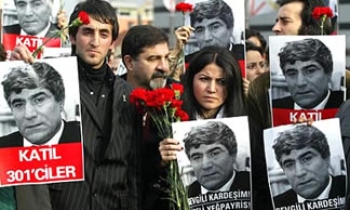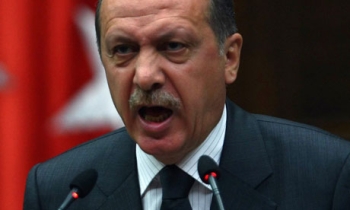MALMO, Sweden (Reuters) - Muslims in Scandinavia have suffered arson attacks on mosques, discrimination in the job market and been demonised in the media, but say they still want to make a future for themselves here and reject extremism.
"They make me out to be a Taliban, but they don't say any positive things like the fact that my kids go to Swedish schools and my wife doesn't cover her face," said Ammar Daoud, who runs a small basement mosque in the southern Swedish city of Malmo.
In contrast with violent protests elsewhere over cartoons of the Prophet Mohammed published in Denmark, leaders of the Nordic region's 870,000 Muslims complain calmly that drawings make them all out as terrorists, when they want peaceful integration.
"Sweden is the best Islamic state now," enthuses imam Adly Abu Hajar, citing Nordic tolerance, welfare and controls on alcohol and prostitution as values shared with the Koran.
His optimism is admirable in the drab surroundings of the Malmo suburb of Rosengard. Tower blocks straddling a motorway house Scandinavia's highest proportion of immigrants and Muslims suffering unemployment of more than 50 percent and endemic crime.
The mosque in Rosengard, Scandinavia's biggest, was burned to the ground by unknown arsonists in 2003 and fire-bombed again as soon as it was rebuilt. Now its snowy minarets are patrolled by local police for fear of more racist attacks.
Mosque director Bejzat Becirov, who during an interview gets an anonymous letter with a lewd cartoon of the Prophet, rejects the media's portrayal of Malmo as a hotbed of Muslim radicalism.
"The problem is not as big as it is made out to be," said Becirov, who came over from Macedonia in 1962. "There are some people who come from war zones with so much hate in their hearts and group together, but they must get rid of that hate."
"I don't think there is extremism in Sweden," said Daoud, a softly-spoken Palestinian scientist, angry at the media for portraying the basement mosques as hardline Islamic agitators.
BAD INTENTIONS?
Malmo has produced some terrorist suspects: two locals were among four Muslims arrested by Swedish police on suspicion of funding bombings in northern Iraq, of whom two were jailed.
Sweden's security police (SAPO) is vigilant but promotes contacts between community leaders and uniformed police rather than "spying on schools," said SAPO spokesman Anders Thornberg.
Reports that Danish imam Abu Laban, accused of aggravating the cartoon row by sending the drawings to Middle East imams, wants to spread radicalism in Malmo via the basement mosques are just scare-mongering, locals say.
"I know Abu Laban and he is no terrorist," said Hajar, whose own credentials as a moderate include a top post in the European Islamic Conference, which promotes Muslim dialogue with Europe.
Laban himself has told Reuters that Denmark is a "good and tolerant country" and that he will try to mend fences.
Daoud says basement mosques have sprouted in Malmo not because they want to host shadowy Arab imams preaching extremism, but simply because the main mosque does not have enough room.
"It's a scandal that here in Malmo with 50,000 Muslims there is only one mosque that can fit in only 400 or 500," he said.
While Muslims here thank Sweden for taking them in, they see failings in Swedish integration policies which were held up as a model after recent riots in France involving many immigrants.
Daoud said Swedish schools had only now withdrawn a textbook with portraits of the Prophet he found offensive and misleading.
"My 16-year-old daughter came home crying two or three times saying 'Look what they are saying about the Prophet'," he said.
Hajar said Nordic government should fund academies to train imams so that mosques are not obliged to import teachers from the Middle East "who may come with bad intentions."
One issue where a culture clash looks tough to avoid is sexual equality. Nordic champions of women's rights fret, for example, when Muslim schoolgirls are banned from swimming.
"I would not let my sisters go out with Swedish boys, it must be a Muslim Swedish boy," said Palestinian Khalil Chemali, who married a Swedish woman who converted to Islam.
But Muslims here say their women suffer discrimination at the hands of Swedish employers, who are reluctant to take on women wearing Muslim traditional dress or a veil.
"There is lots of prejudice," said Pakistani-born Arjumand Carlstein, working to promote equal opportunities. "Employers are afraid that they will have to pray every five minutes."









